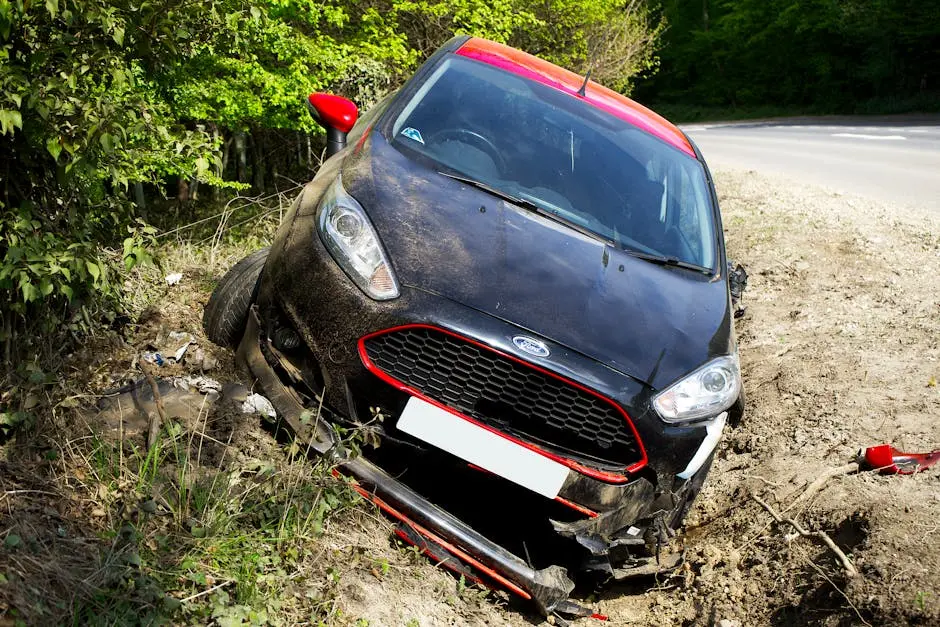Getting into a car accident can be overwhelming, but knowing how to handle the situation can make a significant difference. Whether it’s a minor fender-bender or a more serious collision, this guide outlines the essential steps to take immediately following an accident in Fayetteville. From ensuring everyone’s safety to understanding your rights, read on to navigate this challenging time effectively.
Step 1: Ensure Safety
Check for injuries and move to a safe location if possible. Turn on hazard lights to alert other drivers.
Your priority after an accident should be safety. Ensure that everyone involved is okay. If necessary, help those who might be injured. Remember, safety first.
If you can, exit the vehicles involved and find a safe spot away from oncoming traffic. By doing this, you reduce the chances of further accidents.
Even if the accident is minor, ensuring that you and your passengers are safe is paramount. This first step can prevent more complicated situations down the line.
Step 2: Call Emergency Services
Contact the police and medical services if anyone is injured. It’s crucial to have an official report for insurance purposes.
Calling the police ensures that there is an official record of the incident, which can be invaluable later on. They will document the scene, take statements, and help gauge who is at fault.
Remember, even if injuries seem minor, it’s better to be safe than sorry. Emergency services can provide the necessary medical attention that might not be immediately apparent.
In addition to contacting emergency teams, inform your insurance company about the accident promptly. Having all relevant information ready will make the process smoother.
Step 3: Exchange Information
Collect details from all parties involved, including names, contact information, and insurance details.
Exchanging information can seem straightforward, but it is a critical component of handling the aftermath of any accident. Jot down license plate numbers, insurance policy numbers, and the contact information of witnesses.
This information will serve as the foundation for your insurance claim and any potential legal actions. Therefore, keep it organized and accurate.
Additionally, try to capture the insurance company names and policy numbers for all parties involved. Remember to be polite, as tensions can run high following an accident.
Step 4: Document the Scene
Take photos of the vehicles, damage, and any relevant road conditions or signs, as this evidence can be helpful later.
Documentation might seem like an afterthought, but it’s often the most powerful tool in your arsenal after an accident. Use your phone to snap pictures from multiple angles to capture the entirety of the scene.
If there are any specific road signs, traffic lights, or skid marks, document those as well. All of these elements can help reconstruct the sequence of events if disputes arise later.
Not only photos, but also writing down what happened while it’s still fresh in your mind can prove essential. This can create clarity for everyone involved, including your insurance adjuster.
Step 5: Notify Your Insurance Company
Report the accident to your insurer as soon as possible, providing them with all the collected information and documentation.
Your insurance company needs to be informed promptly about the accident to assist you appropriately. When filing your claim, provide a clear and honest account of what transpired.
Be prepared to share the documentation you’ve gathered, including photos of the scene and information from the other parties involved. This will facilitate a faster claims process.
Make sure to keep records of every conversation you have with your insurer. Dates, times, and the names of representatives you’ve spoken to will be helpful should issues arise.
Step 6: Follow Up with Medical Care
Even if you feel fine, consider getting a medical evaluation to rule out any hidden injuries that might arise later.
Adrenaline can mask pain, which is why a medical evaluation is prudent even if you think you’re okay. Conditions such as whiplash may not appear until hours or days later.
In Fayetteville, the healthcare system is supportive; they will guide you through any necessary examinations. This step is crucial not just for your health but also for your potential claims.
Furthermore, maintaining a clear record of medical visits and treatments is essential. This information can strengthen any legal claims or insurance negotiations.
Step 7: Consult a Car Accident Law Firm
Contact a local car accident law firm to discuss your case, especially if there are disputes over liability or if you have incurred significant injuries or property damage.
Navigating the legal landscape following a car accident can be confusing. A knowledgeable attorney can demystify the process and ensure that your rights are protected.
They will help you understand the nuances of car accident laws in Fayetteville and provide guidance on how to approach your case, from negotiations with insurance companies to potential court proceedings.
Having experienced legal support can alleviate much of the stress associated with your accident. They will work diligently on your behalf while you focus on recovery.
Final Thoughts on Car Accidents in Fayetteville
Remember, staying calm and following these steps can help you manage the aftermath of a car accident more easily. If you need further assistance, don’t hesitate to reach out to a local car accident law firm for guidance tailored to your situation.


